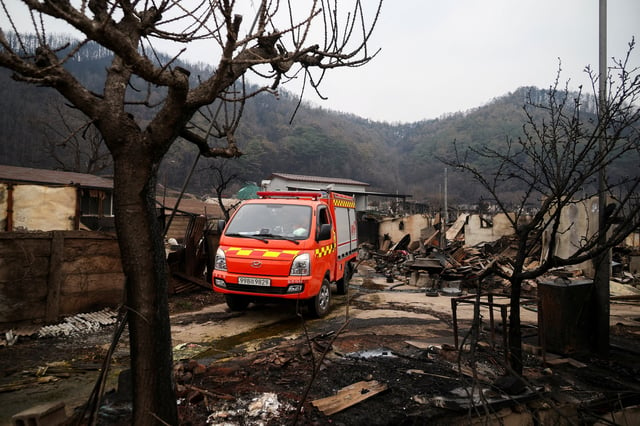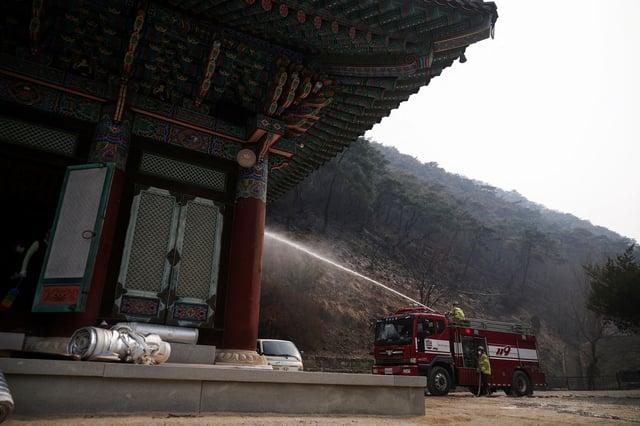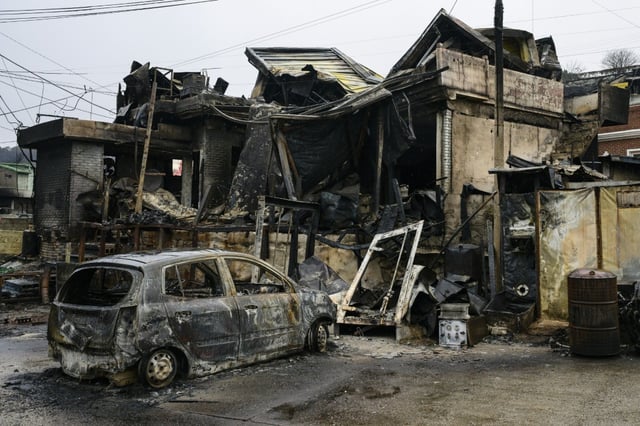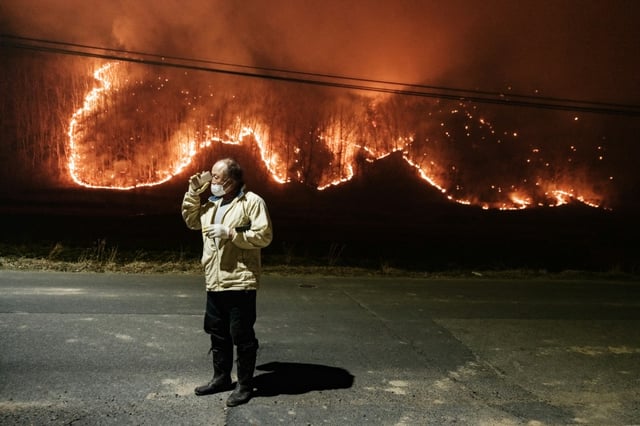Overview
- South Korea’s March 2025 wildfires, the deadliest and most extensive in its history, were fueled by conditions made twice as likely and 15% more intense due to climate change, according to World Weather Attribution research.
- The fires burned through 104,000 hectares, destroyed 5,000 buildings, and claimed 32 lives, surpassing the previous worst fire season by nearly four times.
- Researchers warn that if global warming rises another 1.3°C by 2100, similar extreme fire-weather events could double in likelihood again and intensify further.
- South Korea’s decades-long reforestation efforts have inadvertently increased wildfire risk near settlements, prompting calls for updated forest management practices to mitigate future disasters.
- Experts emphasize the need for proactive risk reduction measures, as extreme wildfire events are increasingly likely to exceed the capacity of conventional firefighting methods.



